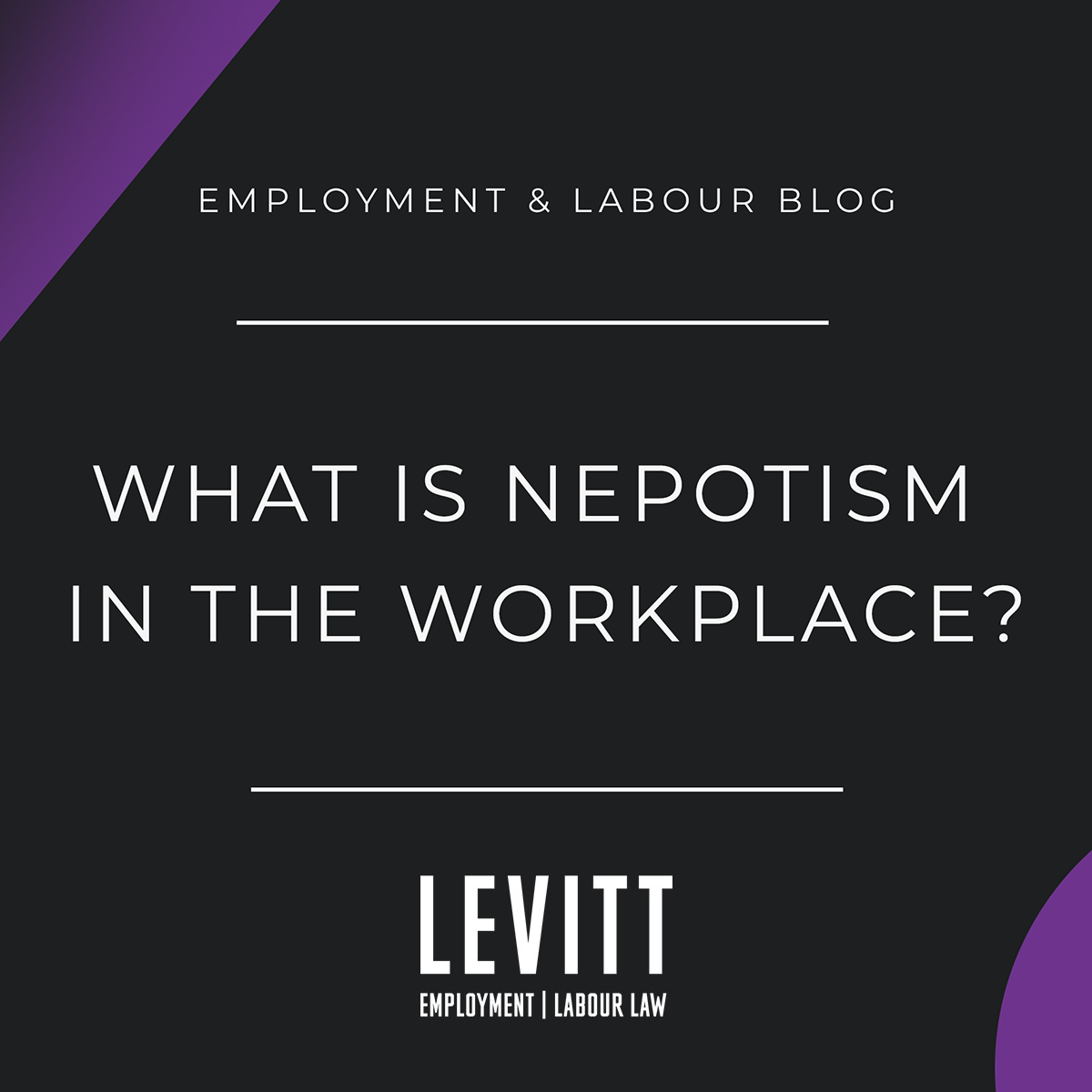What is Nepotism in the Workplace?
Nepotism can be defined as the provision by those in power of an advantage, entitlement, or privilege to an individual, not because of ability or qualifications, but because of the individual’s relationship to the grantor of the privilege.
Some common examples of nepotism include:
- Hiring a family member over a stranger who is more qualified for the position;
- Disciplining an employee for unprofessional behaviour but not disciplining a friend for exhibiting the same behaviour; and
- Providing greater or more comprehensive remuneration to a spouse than to other employees doing similar work.
But is Nepotism Legal?
In a word, yes. There is no statute or common law principle that prohibits employers from having nepotism in the workplace, nor is there a law that prohibits a business owner or manager from making poor business decisions. Indeed, section 24(1)(d) of the Ontario Human Rights Code states that it is not a violation of the Code to grant advancement in employment to a child, spouse or parent of the employer or an employee.
Thus, employers are free to hire, promote, or otherwise provide a benefit to family or friends without the worry of being sued. However, there are other risks to having nepotism in the workplace that employers should be aware of which can be just as costly, if not more.
The Negative Effects of Nepotism in the Workplace
Reduces Employee Morale
It is not difficult to imagine, as an employee, the impact of seeing a peer with far less experience and success being promoted over you simply because they are the manager’s friend or family member. This can result in employees feeling undervalued and unappreciated, which may in turn manifest as feelings of resentment both toward management and toward the individual benefitting from the nepotism.
Low morale in the workplace can become quite contagious – if one employee feels they are undervalued and they are not shy about sharing their negative feelings about the employer with their co-workers, this can have significant consequences. The last thing you want as an employer is to create an environment where it becomes the employees versus management.
Work Productivity May Suffer
Work productivity may suffer in at least two ways as a result of nepotism in the workplace. First, those employees mentioned above who develop feelings of being underappreciated may feel there is no point in working hard. If employees feel that, regardless of how hard they work, their contributions will go unnoticed, it removes the incentive to submit quality work or to achieve targets. In the long term, this can significantly impact employee engagement and satisfaction, and may affect an employer’s ability to attract and retain employees. Second, hiring unqualified family or friends can also result in reduced work productivity because, simply, those individuals will not be as effective in their roles as other more qualified candidates.
Damage to Company Reputation
One of the more costly consequences of nepotism can be damage to the employer’s reputation. Current or ex-employees who are unsatisfied with their employer are unlikely to recommend the company to others. This, again, can impact a company’s ability to attract and retain quality employees.
Moreover, if clients/customers hear about how a company does not hire the most qualified candidates but instead hires their friends and families, it would not inspire trust in the work product or services provided by the company. This could have a significant impact on the company’s bottom line.

